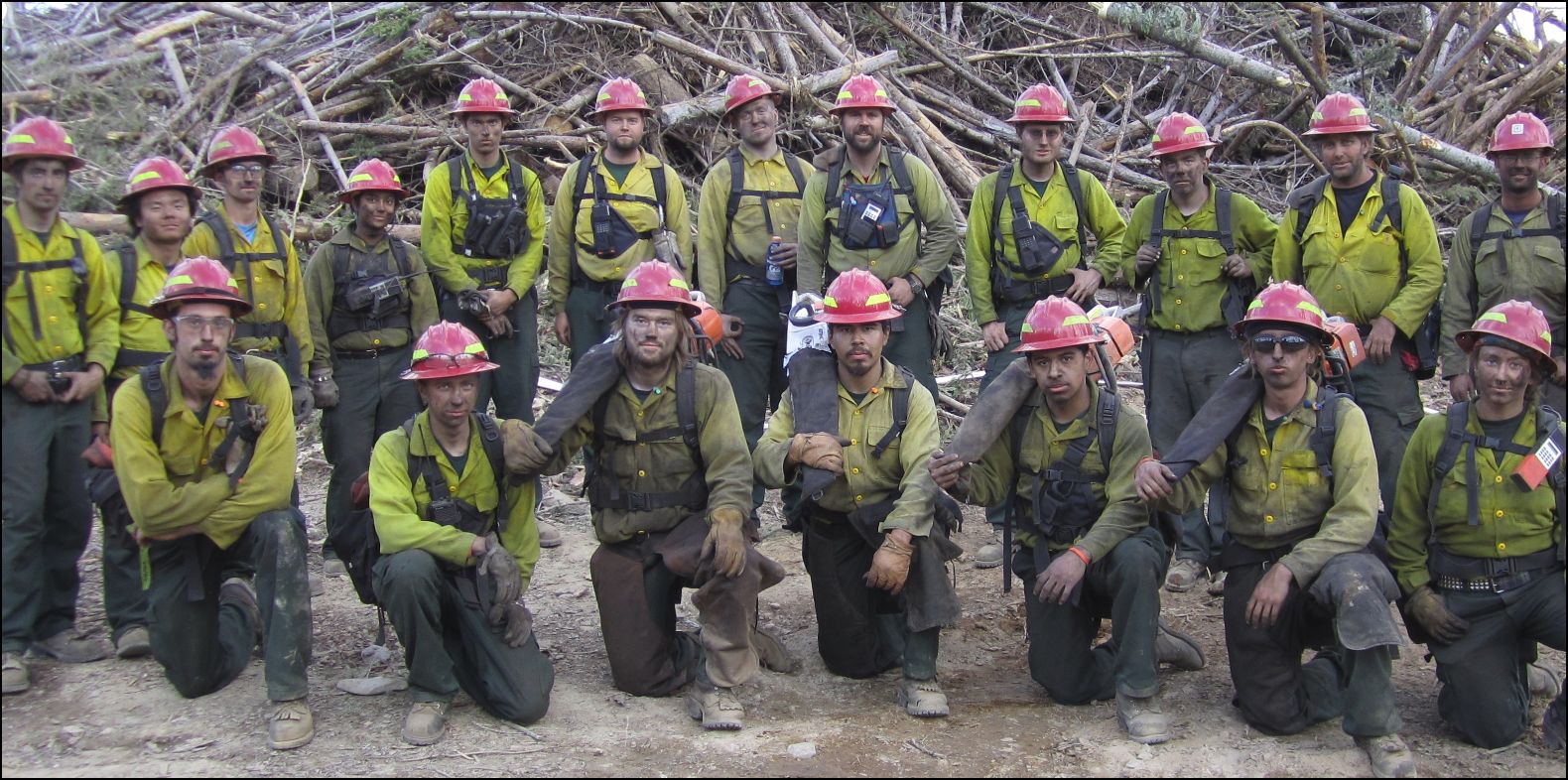 Curlew Job Corps Civilian Conservation Center’s Forestry Technician instructor, Jim Beckwith, has been sharing his love and knowledge of the forest with young men and women at Curlew Job Corps since 1991.
Curlew Job Corps Civilian Conservation Center’s Forestry Technician instructor, Jim Beckwith, has been sharing his love and knowledge of the forest with young men and women at Curlew Job Corps since 1991.
I asked Jim about his career path that led him from a young man growing up in Connecticut, not far from New York City, to the Northwest and teaching 16-24 year olds how to find careers in forest industries.
Q: Why forestry?
A: I always had an interest in the outdoors. A friend’s brother attended a forestry college in northern New York and I looked into it. I ended up going to Paul Smiths College with no idea of what I was getting in to. About half of the students that came for the program quit or did not make it. Along with regular college courses, we were taught how to log not only with modern equipment, but also with horses, surveying, timber cruising, and a variety of other forestry subjects. That program changed my life. I try to model my program with the same goal for the students who come to Curlew Job Corps. I tell my students that the forestry field is very competitive. There is a high value placed on being a hard, reliable worker. I also tell them to never stop learning about what interests them and to be the best they can be. I encourage them to look into colleges and other opportunities to advance themselves.
Q: When did you start work with the U.S. Forest Service?
A: When I was 19, I started in a student apprenticeship program that was actually an unpaid position for the summer that led me to being hired that fall. I left the Forest Service for three years between 1988 and 1991 and worked as a tree climber in the Northeast. I came back in 1991 and earned a permanent position in 1992 on the Colville National Forest. I started working with Curlew Job Corps fire crews in the 90’s. I found the students were eager to work and I enjoyed going out with them and the staff from the Center. We did many fire assignments and controlled burns together. I started as an instructor for Curlew Job Corps in November of 2004.
Q: How hard was it to transition to being an instructor?
A: I didn’t realize I would like being an instructor until I noticed that I could take a student that knew very little about Forestry and I could share all that I knew with them and send them off with a career. It’s pretty rewarding. I think all the instructors at Curlew Job Corps feel the same satisfaction.
Q: What do the Forestry Tech students learn and what’s the average length they stay at Curlew Job Corps?
A: They learn a variety of subjects, but we focus hard on wildland firefighting, climbing skills to work for tree companies, and chainsaw use. These skills are all dangerous to obtain and take a lot of training time to develop safely. It takes about 12 months to complete my program.
Q: What is the make up and duties of the Curlew Job Corps fire crew?
A: The fire crew is made up of twenty people from Curlew Job Corps and the Colville National Forest. About fifteen students are on each crew. Students are paid an hourly wage depending on their job. Assignments can be up to two weeks. Students must be ready to work in any kind of terrain and long hours. Everyone has to be in top shape and able to deal with hardships such as lack of sleep, heat, cold, and being dirty. The crew works to contain fires by digging line, falling trees, and cutting brush. We also use hoses, pumps, wildfire engines and aircraft to get rid of heat and flame. Students must be alert at all times, for safety is the most important factor.
Q: How long has Curlew Job Corps provided fire crews?
A: There have been fire crews at Curlew since the late 1960s. We have the distinction of being the only Job Corps Center that has continuously put out twenty person crews for over forty years. Our Center is run by the Department of Agriculture, Forest Service, so wildland firefighting has always been a part of our duties.
Jim, who has served as a crew boss, squad boss, and sawyer for many crews throughout the years, says that some of his favorite times on fires have been with crews from Curlew Job Corps.
Curlew Job Corps hopes that Jim will continue to share his talents and knowledge with the student who choose this extremely popular trade, and keep turning out high quality graduates for many years to come.


 JOB CORPS
JOB CORPS